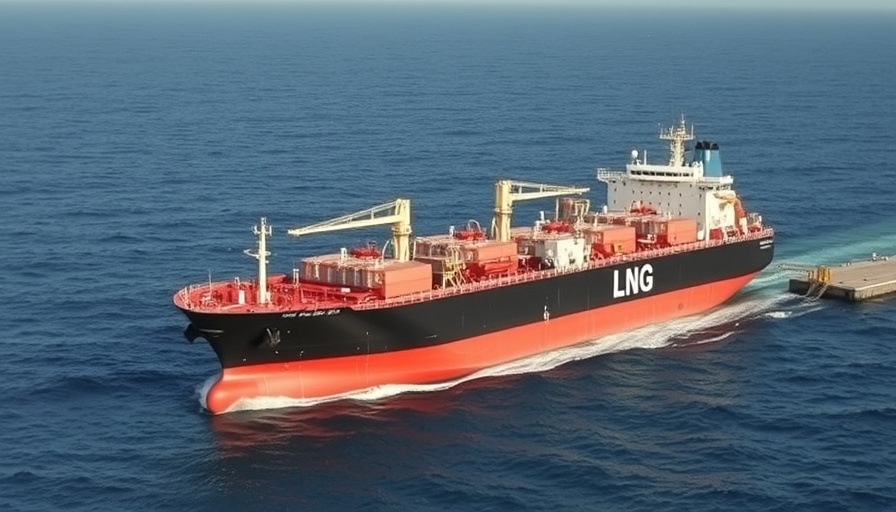
ExxonMobil's Steady Advance on LNG Project Transformation
In an era where energy demands and geopolitical dynamics intertwine, ExxonMobil's commitment to its Rovuma LNG project in Mozambique reflects not only corporate ambition but also significant implications for global energy markets. Despite previously announced delays, the company's robust progress signals optimism amidst challenges posed by security concerns in the region.
An Overview of the Rovuma LNG Project
The Rovuma LNG project, situated in offshore Area 4, is a pivotal development in the context of Mozambique's burgeoning gas industry. Jointly developed by ExxonMobil, Eni, and China National Petroleum Corporation (CNPC), this megaproject is poised to produce approximately 18 million tonnes per annum (MTPA) of liquefied natural gas. Initial expectations may have placed the project's final investment decision (FID) in 2025; however, updated forecasts reveal a shift to 2026, indicating a careful strategizing approach by ExxonMobil as it navigates complexities within the operational landscape.
Understanding the Impacts of Delays
While delays are often seen as setbacks, they can also allow for strategic reassessment in larger projects. The new timeline embraces a cautious optimism regarding the security situation in Mozambique, which has faced issues related to terrorism and civil unrest in recent years. Hence, the company’s spokesperson emphasized their intent to collaborate closely with the Mozambican government to ensure a stable security environment, vital for both operational success and local community support.
Local Impact: Jobs and Skills Development
The construction phase of the Rovuma LNG project is expected to create around 5,000 local jobs, thereby contributing significantly to Mozambique’s economic growth and development. By fostering local skills development, the project aims to leave a lasting legacy not just in terms of infrastructure but as a catalyst for the empowerment of Mozambique's workforce in the energy sector.
Technological Innovations in Industrialization
The LNG project's design underwent a transformative pivot from larger trains to a modular approach following a market environment review and security assessments. This is projected to enhance operational reliability, decrease greenhouse gas emissions, and reduce overall project risks. The strategy aligns with broader global goals of sustainability—a critical discourse within the ongoing dialogue around climate change and industrialization.
Future Projections and Regional Cooperation
Anticipated first LNG production is expected around 2030, projecting an optimistic trajectory for Mozambique’s role in the global energy landscape. The project may also serve as a linchpin for regional cooperation and development, encouraging frameworks for infrastructure, trade, and sustainable practices within the AfCFTA (African Continental Free Trade Area).
Conclusion and Call to Action
As ExxonMobil tirelessly progresses its Rovuma LNG project, the implications extend far beyond financial returns. The partnership models between global corporations and local government can redefine Mozambique's energy narrative, fostering not just economic growth but reinforcing democratic governance and community resilience amid challenges. It is crucial for stakeholders, policymakers, and community leaders to engage in discussions on maximizing both economic opportunities and social benefits stemming from this project. Explore ways to support initiatives that ensure local communities reap the full potential from this transformative venture.
 Add Row
Add Row  Add
Add 




Write A Comment